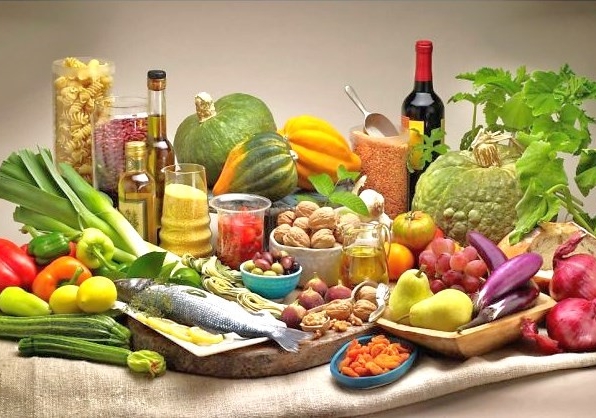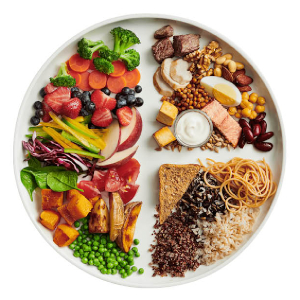A new study from the University of Bristol (UK) says some of our assumptions about why we choose to eat the foods we do may be fundamentally wrong. Researchers were particularly curious to see how average folks feel about Processed Foods…
 Funny, how the tried and true Mediterranean diet always seems to
Funny, how the tried and true Mediterranean diet always seems to
be supported by findings of new diet and nutrition studies…
What they did
The study, led by Bristol’s Nutrition and Behaviour Group, wanted to test the common but largely untested assumptions that food energy density (calories per gram), level of processing, and carbohydrate-to-fat ratio are key factors influencing food liking and desirability.
According to an abstract of the study, “Individual participants (224 women and men, mean age 35 years; 53 percent with healthy weight, 43 percent with overweight or obesity) were randomised to one of three, within-subjects, study arms: energy density (32 foods), or level of processing (24 foods), or [carbohydrate-to-fat ](CF) ratio (24 foods). They rated the foods for taste pleasantness (liking), desire to eat (food reward), and sweetness, saltiness, and flavour intensity (for analysis averaged as taste intensity).”
Foods included in the survey represented the entire spectrum of the Western Diet: from avocados, grapes, cashew nuts, king prawns and olives, to blueberry muffins, crispbreads, pepperoni sausage, and ice cream.
What they found
A summary of the study findings in Neuroscience News highlights three key points:
- Contrary to common belief, ulrta-processed foods (UPFs) were not more liked or desired than less processed foods.
- Foods with a balanced carbohydrate-to-fat ratio and higher taste intensity were more preferred.
- The study proposes that humans innately prefer foods that are less filling but calorie-dense, reflecting an evolutionary adaptation for maximizing calorie intake.
The takeaway
Professor Peter Rogers in the School of Psychological Science, and the study’s lead author, observed: “Our results challenge the assumption that ultra-processed foods are ‘hyperpalatable’, and it seems odd that this has not been directly tested before.”
“Our suggestion is that humans are programmed to learn to like foods with more equal amounts of carbohydrate and fat, and lower amounts of fibre, because those foods are less filling per calorie.” Rogers added. “In other words, we value calories over fullness. […] In turn, this trait helps us to maximise calorie intake and build up fat reserves when food is abundant. Which is adaptive in circumstances when food supplies are uncertain or fluctuate seasonally. But not when food is continuously available in excess of our immediate needs.”
My take
In other words, the new study confirms what previous ones have suggested: That we’re still wired to eat like our ancient ancestors did. We tend to cram-in the calories when can, obeying an echoing, prehistoric voice in our heads that says, “You don’t know when your next meal will be! Stock up now, while you can!”
I will admit, I was really surprised to find that processed an ultra-processed foods were found to be less desirable to the study subjects than more-balanced foods.
But I will also admit that I was shocked when putting together the post, earlier this week, that dealt with new findings about the amino acid isoleucine. Foods I thought were healthy – such as beans, lentils and other legumes – turned out to be high in the substance. And too much isoleucine in our diet is now linked to obesity, cancer and curtailed longevity.
Nevertheless. I’m compelled to remind everyone out there to follow the recommendations of their respective countries’ food and nutrition guides. (See photo, top of page) It’s no accident that those guides support vast majority of new study findings coming out every week.
Just proves, you have to remain open to new ideas. But you still have to weigh them against the old ones. The principle of ‘balance’ is a cornerstone of good, old common sense…
~ Maggie J.

